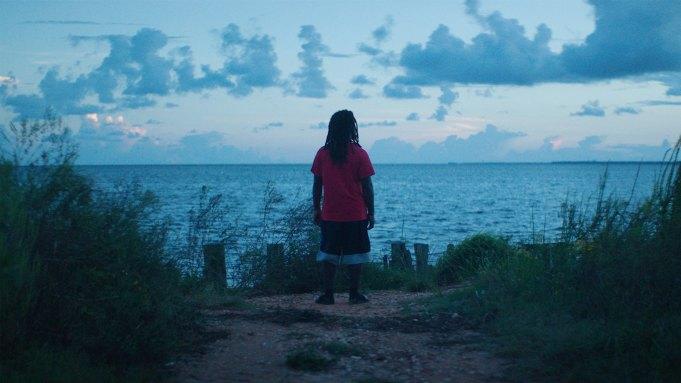Technically, it was researcher Ben Raines who discovered the remains of the Clotilda at the depths of a river in Alabama’s Mobile-Tensaw Delta in 2019.
But as Kern Jackson relays it, the community of Mobile’s Africatown – many of who are direct descendants of the 110 African men, women and children kidnapped and illegally transported to the shores of Alabama in 1860, a half-century after the slave trade was outlawed in the U.S. – already knew where the ship was. They simply didn’t have the resources to unearth it.
“It was just a matter of having the privilege and the access to go out and find it,” Jackson tells Yahoo Entertainment in a recent interview. “I know back in the ’90s people were telling me it was in the same spot.”
But it was rumors that Raines had located the Clotilda, America’s last known slave ship and the only one ever found, that helped Jackson lure filmmaker Margaret Brown back to Alabama to begin work on Descendant, the powerful, insightful and eye-opening documentary that premiered at the virtual Sundance Film Festival late last month, where it won a special jury award for creative vision.
Jackson, a folklorist and director of African American studies at the University of South Alabama who was a historian on Brown’s 2008 Mobile Mardi Gras doc The Order of Myths, joined as co-writer and co-producer on Descendant, which also counts as its producers The Roots members Ahmir “Questlove” Thompson (currently an Oscar favorite for his directorial debut, Summer of Soul) and Tariq “Black Thought” Trotter.
The oral history of the Clotilda has been passed down in Africatown for generations: Wealthy Mobile shipyard owner Timothy Meaher, after apparently making a bet that he still could smuggle enslaved Africans into America some 50 years after 1807’s Act Prohibiting Importation of Slaves, hired Captain William Foster to sail two-masted schooner back and forth to West Africa. The people they abducted were forced into labor upon their return, and the ship was burned in Mobile Bay. For decades, even well past their emancipation, Mobile’s Black citizens could not openly discuss the story of the Clotilda for fear of violent retribution.
“We knew it was there, but you gotta understand the tensions fighting against it,” Jackson says. “There are people in our community that did not want that known.”
As much as Descendant starts with the Clotilda, it’s also a tribute to the people of Africatown – the community documented by Zora Neale Hurston, author of Their Eyes Were Watching God whose story of the Cotilda’s last remaining survivor Cudjoe Lewis, Barracoon: The Story of the Last “Black Cargo,” was Ω posthumously released in 2018.
Unable to return to their homeland after the Civil War, a group of 32 West Africans founded the community, retaining many of their customs. While some 12,000 people once lived in the all-Black, it now is home to only about 2,000, and was absorbed by the city of Mobile after World War II.
In some of the more exasperating sequences in Descendant, Brown depicts how pollutant factories and smokestacks have surrounded the mostly low-income community, a major contributor in ongoing health risks and sicknesses many of its residents have faced or suffered. Much of the industry and property in and around Africatown is still owned by the wealthy Meaher family, descendants of illegal slave owners, and the city’s other white longtime stakeholders – the film’s resounding, damning proof that the racial and wealth power structures from the American slavery era remain firmly intact there. And not only that, there’s still suffering being caused today.
It makes for one of the most convincing cases you’ll find for reparations in the U.S. today.
“For the Clotilda descendants, it seems to,” Jackson says. “Their ancestors were brought here.”
How those reparations would be executed, while discussed in the film, is far too complex an issue to dig into in this space.
“But I know some of the Africatown folks, they just are tired of fighting industry,” Jackson explains. “And industry may not necessarily go away, but they want the perpetrators of the crime, who benefited through generational wealth, to engage. To be a part of democracy. Are you neighbors or aren’t you? That’s what’s interesting to me. I mean, some people are still renting from the Meahers, and their ancestors were kidnapped by the Meahers. What do you do with something like that?” (The Meahers declined to be interviewed for Descendant.)
Descendant still delivers hope, though: the hope that Africatown and its residents can find some measures of justice and solace in the discovery of the Clotilda and its potential excavation (though “it’s gonna sit there for a while because it costs so much money to do underwater archeology,” Jackson warns), validating the tales of their history long passed down from their ancestors.
Jackson is optimistic, too, pointing to a flood of activity currently afoot around the community, from livable space efforts to new paddle tours and other leisure activities to environmental movements to clean up the area and new heritage organizations to preserve the area’s history – not to mention an influx of tourism, which not all the residents are thrilled about.
The future, he says, though, “is brighter than it’s been.”
Netflix acquired Descendant out of the Sundance Film Festival. Its release date hasn’t been announced, but it’s widely expected to premiere in 2022.




